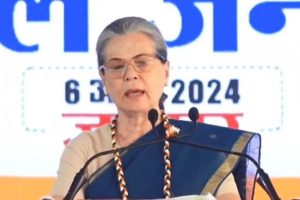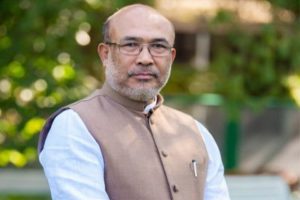On the eve of Christmas, Christians around the world will be celebrating family time and the birth of Jesus Christ. Traveling through Vietnam, governed by the Communist Party of Vietnam, Christmas was everywhere – in the shops, hotels and restaurants. It was a nice feeling to witness universal joy for Santa Claus, a time for giving and festivities.
As a Christmas present, I was given by an old friend a copy of Richard Wilhem’s translation of the I Ching (Book of Change), with a foreword by the famous Swiss psychologist, Carl Jung (1875-1961). The I Ching is probably the oldest surviving text on how to deal with uncertainty. Jung was one of the first Western scientists to recognize that if man is more affected by nature and the unpredictable behaviour of other men or women, then “every process is partially or totally interfered with by chance, so much so that under natural circumstances a course of events absolutely conforming to specific laws is almost an exception.”
Advertisement
In other words, Chinese thinking starts from a different premise than Western science of causality, which are statistical patterns that must allow for random events (what we today call Black Swans).
The dating of the earliest version of the I Ching goes back to probably 4,500 years ago, when the first Eight Trigrams were formulated as an early attempt to classify different ways of responding to random events. If correct, the I Ching predates the Axial Age, coined by German philosopher Karl Jaspers for a period of flowering of civilization in the 8th to 3rd centuries BC in Greece, Babylon, India and China. The I Ching is considered the fount of many sources of Chinese culture, including mathematics, astronomy, historiography, music, architecture, medicine, philosophy, martial arts, political theory, art and religion. Both Taoism and Confucianism have their roots in the I Ching. For example, the German mathematician Gottfried Leibnitz (1646-1716) invented binary mathematics when given a copy of 64 hexagrams by a French Jesuit priest working in China. Leibnitz’s binary theory, the basis of computer science, found inspiration from the I Ching's depiction of the universe as a progression of interactions between contradicting polarities, between male and female, on and off or zero or one.
There are three fundamental principles of change embodied in the I Ching. The first constant is that everything changes. The second principle is change through simplification which is the exact opposite of the Second Law of Thermodynamics that everything becomes more complex. The third principle is that even though things change, things may not change.
The first concept of constant change was recognized by the Greek philosopher Heraclitus of Ephesus (535-475 BC), who argued that change was the fundamental essence of the universe, encapsulated in his saying “no man ever steps in the same river twice.” He also understood the unity of opposites that “the path up and down are one and the same.”
The second principle of “simplification” is that the universe can be reduced to very simple principles, which are easy to understand and easy to follow. That is very much the reductionism of physics that tries to find the theory of everything in simple mathematical form.
The third principle of “no change” can be interpreted as “the more things change, the more things stay the same.” Everything is formed by opposite poles, such as order and chaos. Without order, there will be chaos, and without chaos, there cannot be order.
These ideas of timeless existence and unchanging reality were also expounded by the Greek philosopher Parmenides of Elea (late sixth or early fifth century BC), who conceptualized that reality is unchanging, but perceptions or senses of reality are fleeting.
people think that the I Ching is a book of oracles or mystic mumbo jumbo, since one can interpret the 64 different hexagrams in very different ways. Those of us who use the I Ching ask: if life is affected by many random and unpredictable ways, how should we think about handling or facing such challenges?
simple answer is that there are books like the Bible that reveal the truth to the reader. But as we know, every written word is subject to interpretations, which each of us feel or assess differently depending on our individual experience. Furthermore, the more complex the situation, the more different the interpretations or options available for action or non-action.
The I Ching is useful, at least to those of us who consult it, not for actual predictions, but the process of analysis. Firstly, every piece of information, however random or unrelated, may be relevant, because life or nature is inter-connected in ways that are not always obvious. For example, when Trump won the elections, every world leader was scrambling to find the right connections to get through to him. Some of them found it through the son-in-law. That is almost second nature to many Asians. The second process embedded in the I Ching, is to ask questions that you do not normally ask yourself. For example, have you considered factors that are outside your normal frame of analysis? It is fashionable to talk about elephants in the room that everyone sees but refuse to talk about, or the black swan event that is rare but catastrophic in outcome. The I Ching questions everything, because there are no certainties. The third part of I Ching is that we must think about the system as an interacting whole, not in compartments that do not add up. You cannot fix a system by just surgically removing one part of it. The human body is an interconnected whole in which pain in the toe could be symptom of an organ dysfunction.
In 2017, Brexit and Trump’s assumption as President will bring many more surprises and what appear as random events. My Christmas present will be often consulted, not for predictions, but how to prepare psychologically for radical surprises. Merry Xmas and Happy New Year to all.
The writer, a former Central banker, comments on global affairs from an Asian perspective.
Special to ANN











